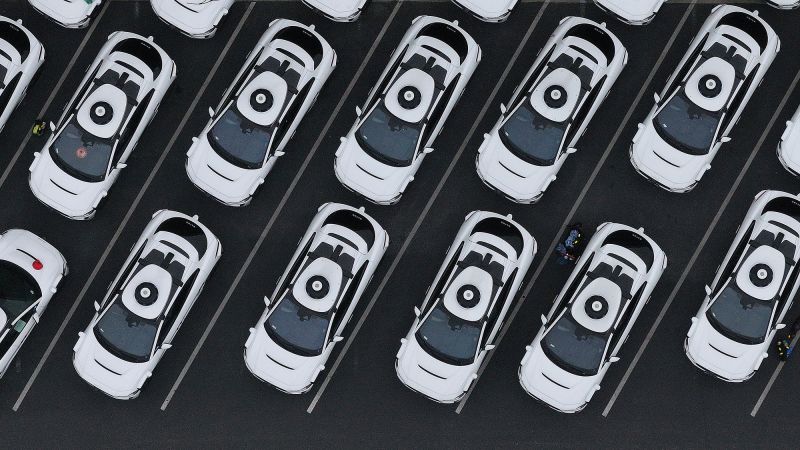Waymo, the self-driving car unit of Google parent Alphabet, is returning to New York City.
But it won’t be offering rides to the paying public yet, as it currently does in four other cities. The company announced Wednesday that it has applied for a permit with the New York City Department of Transportation for its vehicles to operate autonomously with a “trained specialist” behind the wheel in Manhattan.
Waymo says it does plan to eventually introduce a self-driving service for paid rides in New York City, even if the company doesn’t have a time frame for bringing it to the streets of the nation’s largest and most traffic-ridden city. It called the test “an important step towards one day serving New Yorkers.”
Waymo last deployed its cars in New York in 2021. But that was only a test for data collection and weather testing while a human actually drove the vehicle, the company said.
This year’s deployment in the nation’s most congested city will still be a test, but “if the permit is granted, (Waymo) would be (New York City)’s first testing deployment of autonomous vehicles,” the company said.
Shares of Lyft (LYFT) and Uber (UBER) both fell following the announcement.
Waymo already provides more than 250,000 paid rides a week without a human driver in Los Angeles, San Francisco, Phoenix, and Austin, Texas. But it is illegal in New York state to operate a car without a person ready to take control of the vehicle to avoid an accident. Waymo also announced it will begin pushing for a change to that state law. And any company offering a self-driving system officially requires approval from New York City, human driver or not.
Waymo has partnered with Uber to provide the service in Phoenix and Austin, and is operating robotaxis itself in Los Angeles and San Francisco. It plans to soon be in Atlanta, Miami and Washington, DC. In addition, Tesla has announced plans to start its own “robotaxi” service in Austin this Sunday, with plans to expand to other cities in the “coming months.” Tesla, however has been promising its widespread robotaxi service was only “a year away” since 2019.
Still, Tesla CEO Elon Musk insists that providing robotaxi services will produce massive profits and an increased share price for his company. But profitable self-driving car services have thus far remained elusive for other providers.
Alphabet does not disclose the financial performance of Waymo. But the segment of the company that includes Waymo reported a $4.1 billion loss last year, even as Alphabet poured in $5.6 billion. That loss is little more than a rounding error for a company that reported net income of $100 billion in 2024.
General Motorspulled the plug on its own self-driving car hailing service in December, citing the “considerable” resources needed and “an increasingly competitive robotaxi market.”Ford dropped its AV efforts altogetherin 2022.
